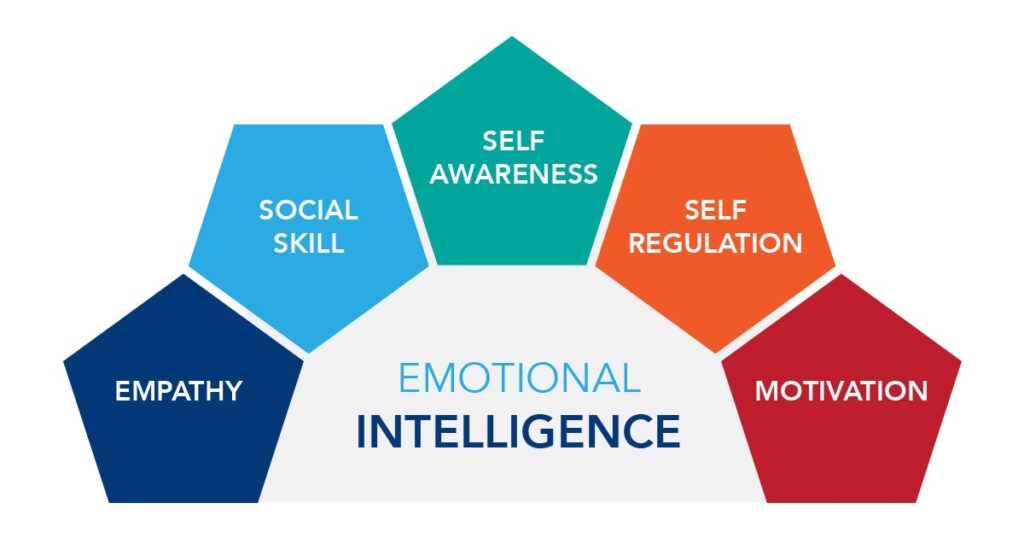What are the 5 elements of emotional intelligence?

What are the 5 elements of emotional intelligence?
Emotional intelligence is about understanding and managing emotions, both in ourselves and others. It’s a vital skill that helps us navigate life’s challenges and build strong relationships. There are five key elements of emotional intelligence: self-awareness, self-regulation, motivation, empathy, and social skills. Each of these elements plays an important role in how we handle our emotions and interact with others.
Self-awareness is the ability to recognize and understand our own emotions. It’s about being in tune with how we feel and knowing why we feel that way. When we are self-aware, we can better understand how our emotions influence our thoughts and actions. This understanding helps us make more informed decisions and respond to situations in a balanced way.
Self-regulation is the ability to manage and control our emotions, especially during stressful or challenging situations. It’s about staying calm and composed, rather than reacting impulsively. People who are good at self-regulation can think clearly even when under pressure, which allows them to handle difficult situations with grace. This skill is important because it helps us maintain control over our reactions and avoid making decisions we might later regret.
Motivation in emotional intelligence refers to the inner drive that keeps us focused on our goals. It’s the passion and commitment to keep going, even when things get tough. Highly motivated people use their inner drive to overcome obstacles and stay on track toward their objectives. This motivation is not just about external rewards, but also about finding personal satisfaction in what we do.
Empathy is the ability to understand and share the feelings of others. It’s about seeing things from another person’s perspective and responding with care and compassion. When we are empathetic, we can connect with others on a deeper level and build strong, trusting relationships. Empathy also helps us resolve conflicts more effectively, as it allows us to consider the emotions and needs of others.
Social skills involve the ability to interact well with others. This includes effective communication, teamwork, and the ability to build and maintain positive relationships. People with strong social skills are good at influencing others, leading teams, and creating a positive environment around them. These skills are crucial for working well with others and achieving success in both personal and professional life.
In conclusion, emotional intelligence is made up of five key elements: self-awareness, self-regulation, motivation, empathy, and social skills. Each of these elements helps us understand and manage our emotions, connect with others, and navigate social interactions effectively. Developing emotional intelligence can lead to better relationships, improved decision-making, and greater overall success in life.